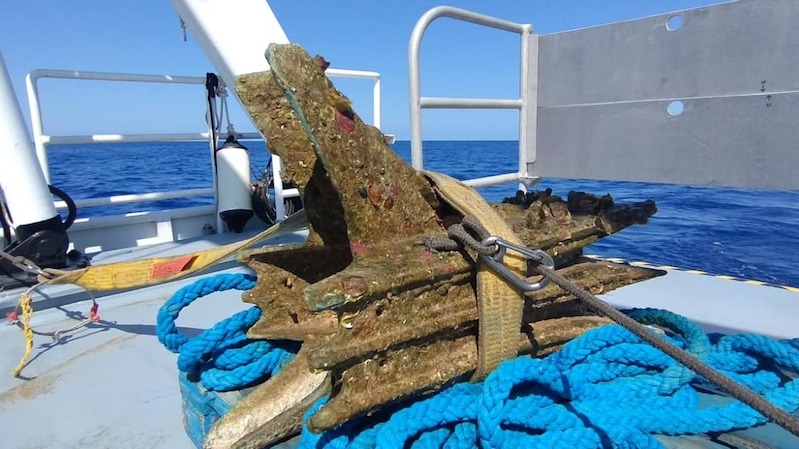
A Roman battering ram found at the bottom of the Mediterranean Sea was used during an epic battle that unfolded more than 2,200 years ago.
Researchers used a deepwater submarine to recover the large bronze piece at a depth of 260 feet (80 meters) off the coast of Sicily’s Aegadian Islands. The ram was once attached to an ancient warship, according to a translated Facebook post by the Sicily Superintendence of the Sea, part of the region’s Department of Cultural Heritage, which announced the find.
The ram would have been used during the Battle of the Aegates, an “important historical event” fought in 241 B.C. between Rome and Carthage, an ancient city in what is now Tunisia. Rams were a way for captains to crash into — and ultimately sink — enemy vessels.
The skirmish was the final battle of the First Punic War between the two superpowers, which lasted for 23 years and ultimately led to Carthage surrendering to Rome, according to the World History Encyclopedia.
Related: Rare gold coins and cremated infants were possible sacrificial gifts to the ancient gods of Carthage
Analysis of the ram, which is now onshore on the island of Favignana, has revealed that the artifact contains an ornamental relief depicting a Montefortino-style Roman helmet with three feathers, according to Finestre sull’Arte, an Italian art journal.
This style of pointed helmet was standard issue for Roman troops, according to the Roman Numismatic Gallery.
This isn’t the first time that researchers have found relics of war, such as swords and coins, in this part of the Mediterranean, according to Finestre sull’Arte.
“The [Aegadian] seabed is always a valuable source of information to add further knowledge about the naval battle between the Roman and Carthaginian fleets,” Francesco Paolo Scarpinato, the city councilor of Palermo, told Finestre sull’Arte. “…archaeologists’ studies [have] allowed the identification of the theater of the battle that sanctioned the dominance of the Romans over the Mediterranean.”
#2200year #battering #ram #epic #battle #Rome #Carthage #Mediterranean
